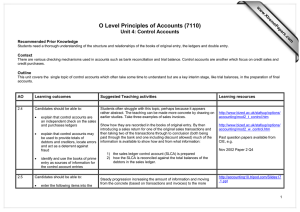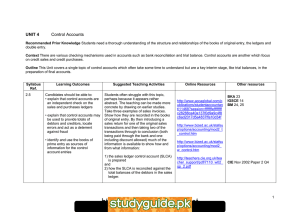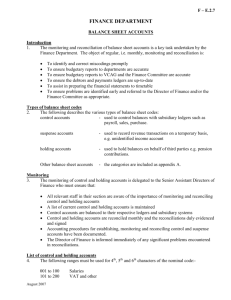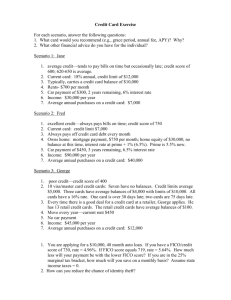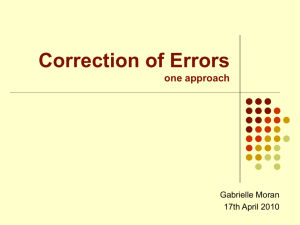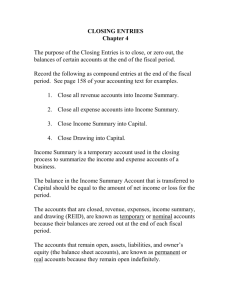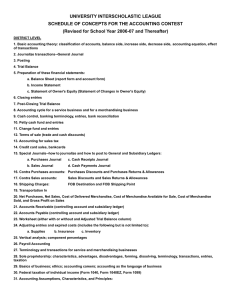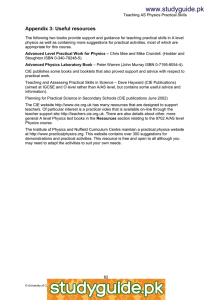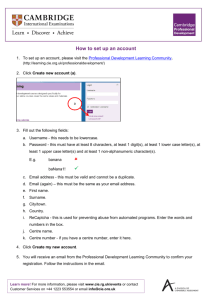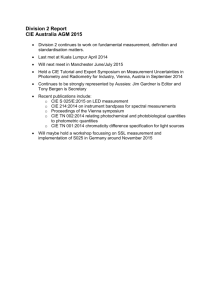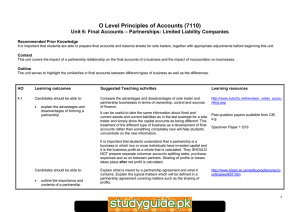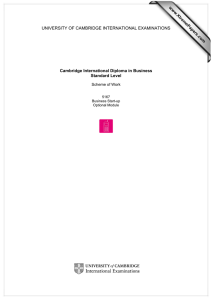O Level Principles of Accounts (7110) Unit 4: Control Accounts
advertisement
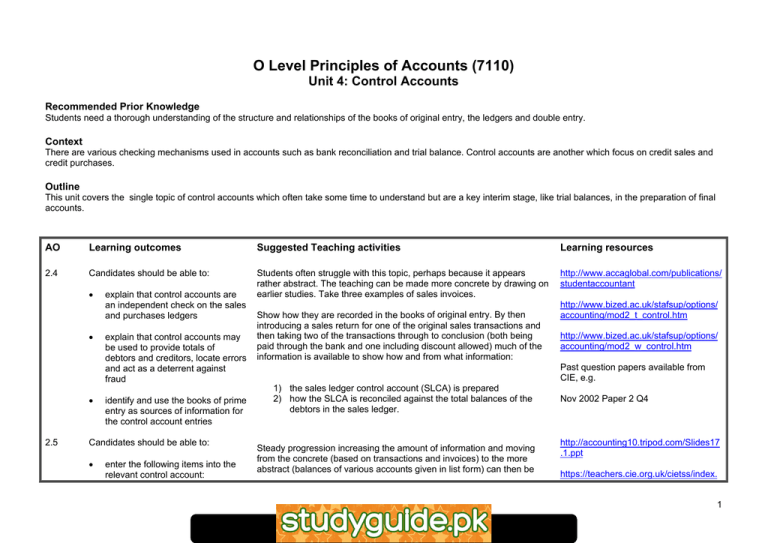
O Level Principles of Accounts (7110) Unit 4: Control Accounts Recommended Prior Knowledge Students need a thorough understanding of the structure and relationships of the books of original entry, the ledgers and double entry. Context There are various checking mechanisms used in accounts such as bank reconciliation and trial balance. Control accounts are another which focus on credit sales and credit purchases. Outline This unit covers the single topic of control accounts which often take some time to understand but are a key interim stage, like trial balances, in the preparation of final accounts. AO Learning outcomes Suggested Teaching activities Learning resources 2.4 Candidates should be able to: Students often struggle with this topic, perhaps because it appears rather abstract. The teaching can be made more concrete by drawing on earlier studies. Take three examples of sales invoices. http://www.accaglobal.com/publications/ studentaccountant • • • 2.5 explain that control accounts are an independent check on the sales and purchases ledgers explain that control accounts may be used to provide totals of debtors and creditors, locate errors and act as a deterrent against fraud identify and use the books of prime entry as sources of information for the control account entries Candidates should be able to: • enter the following items into the relevant control account: Show how they are recorded in the books of original entry. By then introducing a sales return for one of the original sales transactions and then taking two of the transactions through to conclusion (both being paid through the bank and one including discount allowed) much of the information is available to show how and from what information: http://www.bized.ac.uk/stafsup/options/ accounting/mod2_t_control.htm http://www.bized.ac.uk/stafsup/options/ accounting/mod2_w_control.htm Past question papers available from CIE, e.g. 1) the sales ledger control account (SLCA) is prepared 2) how the SLCA is reconciled against the total balances of the debtors in the sales ledger. Steady progression increasing the amount of information and moving from the concrete (based on transactions and invoices) to the more abstract (balances of various accounts given in list form) can then be Nov 2002 Paper 2 Q4 http://accounting10.tripod.com/Slides17 .1.ppt https://teachers.cie.org.uk/cietss/index. 1 www.xtremepapers.net AO Learning outcomes o o o o o o o o o o credit sales and purchases receipts and payments discounts returns bad debts dishonoured cheques interest on overdue accounts contra entries refunds opening and closing balances (debit and credit within each account) Suggested Teaching activities Learning resources used to prepare students for the type of question they will meet in the examination. htm Plenty of practice and checking understanding by asking for explanation of entries should enhance and reinforce knowledge and understanding. http://www.accaglobal.com/publications/ studentaccountant/ Past question papers available from CIE, e.g. Nov 2003 Paper 1 Q18, 19, 20, Jun 2005 Paper 1 Q22 Specimen Paper 1 Q13 Questions will not be set on situations where the control accounts are part of the double entry system. Further practice will be available to act as revision when control accounts can be used to calculate credit sales and credit purchases totals for incomplete records questions. Nov 2001 Paper 2 Q3 2 www.xtremepapers.net
